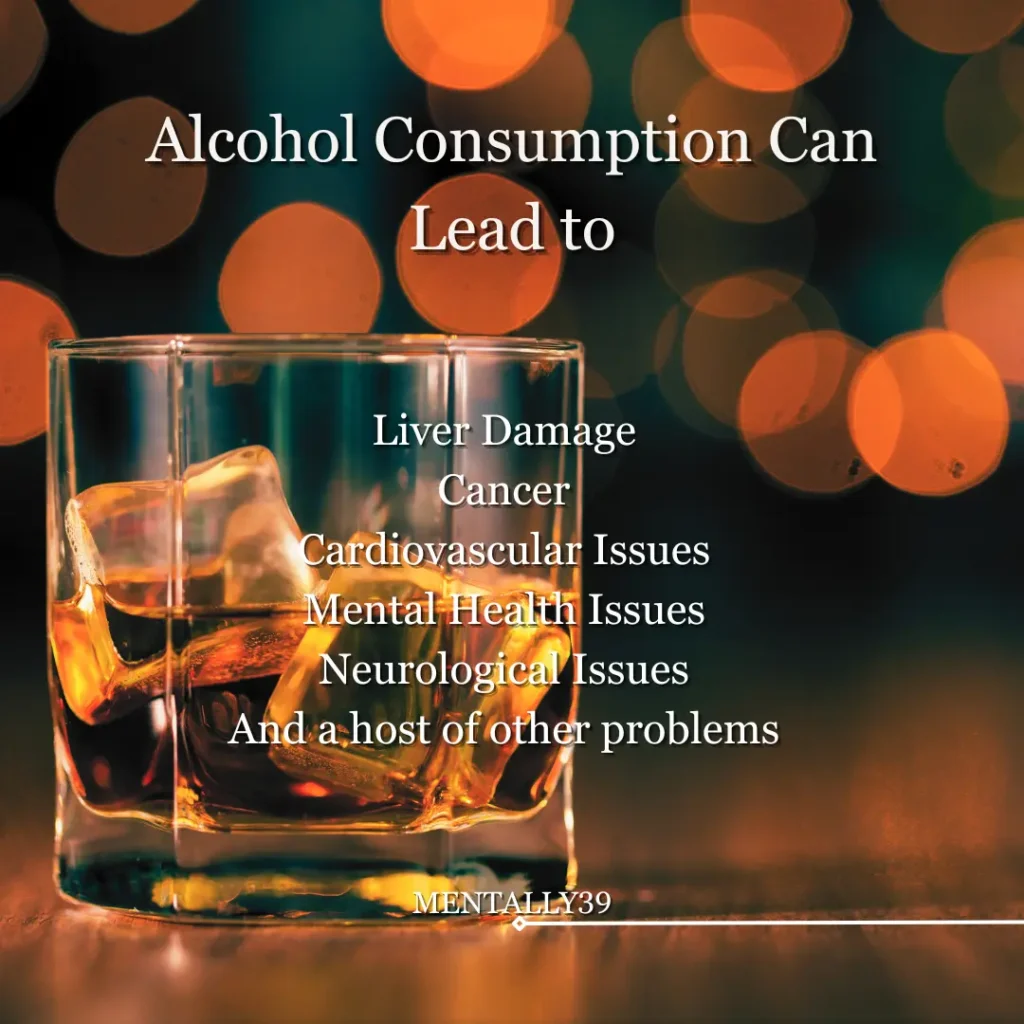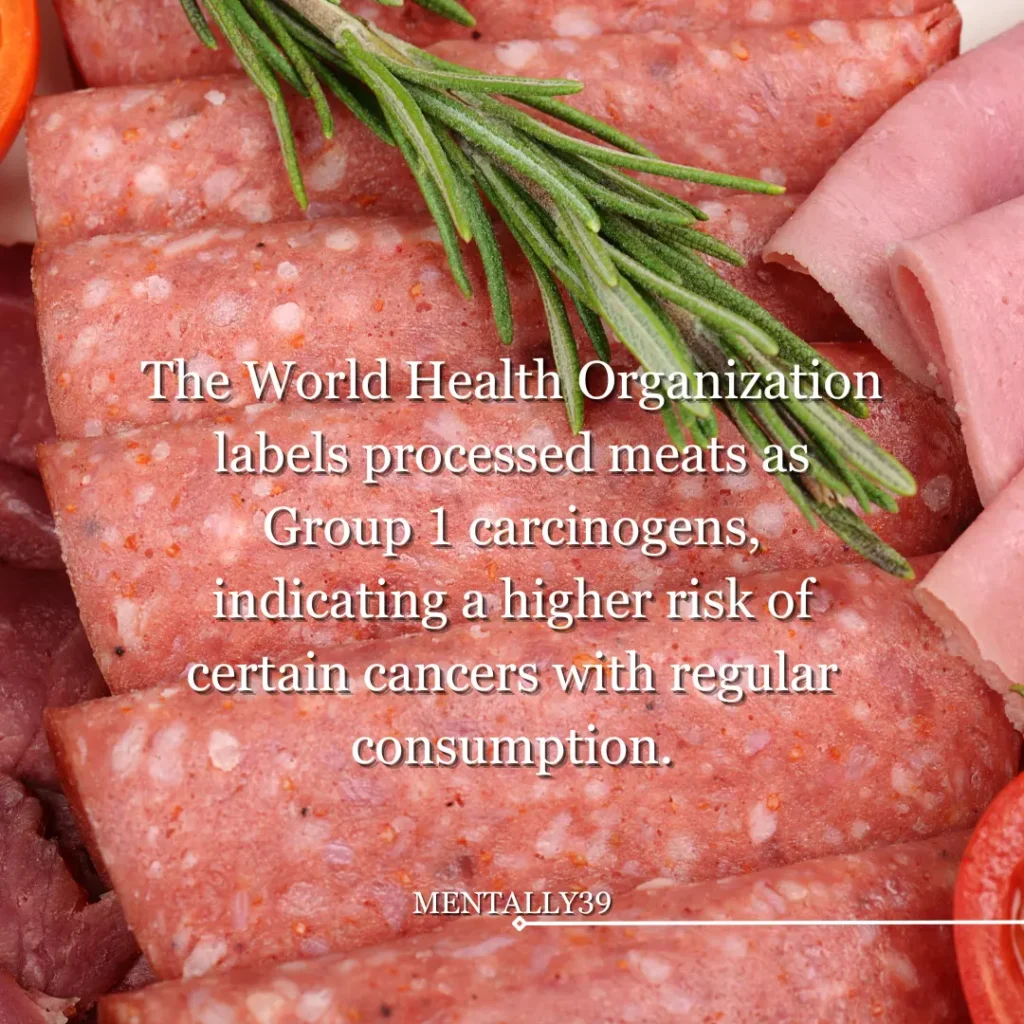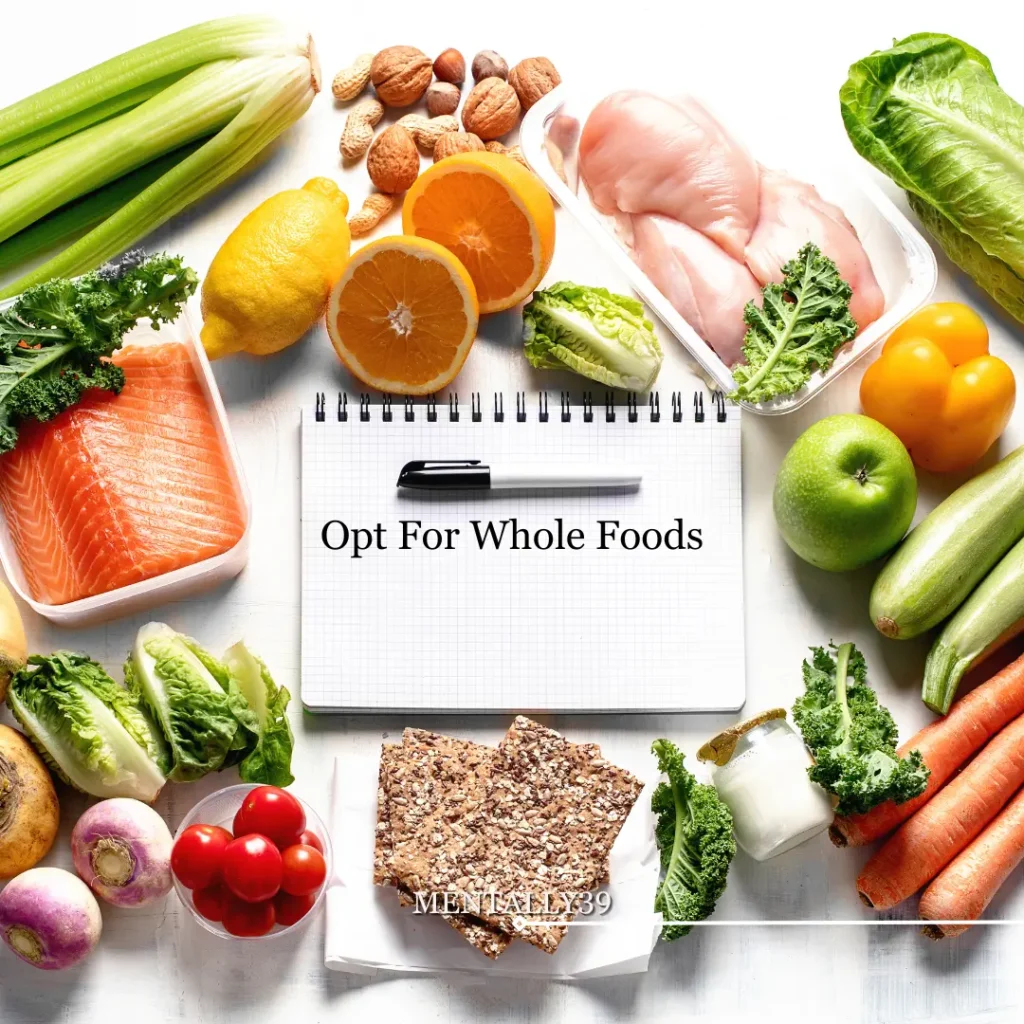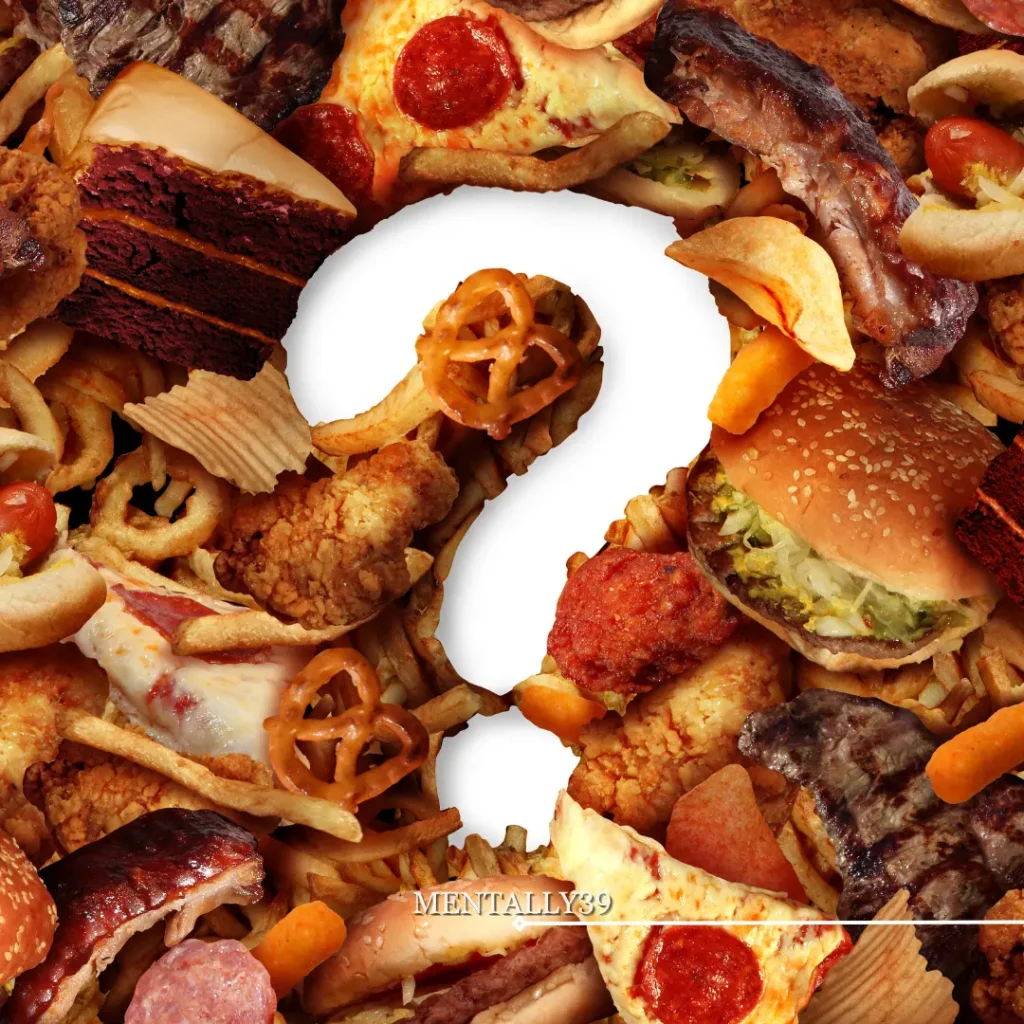Our nutritional needs change as we age, and healthy food choices to support overall health and aging are even more important.
The foods we eat after 50 can significantly impact our heart health, weight management, blood pressure, and overall well-being. In this article, we will explore the top foods to avoid after 50 to help you make smart decisions about your diet and maintain good health. So, let’s look at a comprehensive list of foods and food groups to avoid after age 50, including reducing your sodium intake, cutting back on empty calories, and making necessary changes to your eating habits.
Table of Contents
Are there specific health risks associated with consuming certain foods after age 50?
After 50, foods high in trans fats, excess sugar, and sodium can increase risks of heart disease, diabetes, and high blood pressure. Processed foods, sugary drinks, and foods low in fiber should be avoided to maintain optimal health after 50.
Foods to Avoid After Age 50
Key Takeaways:
- Avoid alcohol or limit intake to the Dietary Guidelines for Americans recommendations to reduce the risk of health complications and support longevity.
- Processed meats, such as sausages and hot dogs, should be minimized due to their classification as Group 1 carcinogens and their potential link to colorectal cancer.
- Sugar-sweetened beverages contribute to various diet-related chronic conditions and cognitive decline, making it important to replace them with healthier alternatives.
- Ultra-processed foods high in salt and additives should be reduced, as they have been linked to health problems, including cancer and shorter telomeres associated with aging.
- Fried and charred meats cooked at high heat can produce harmful compounds that increase the risk of cancer, so it is advisable to reduce their consumption and explore healthier cooking methods.
The Impact of Alcohol on Aging
Alcohol consumption can have significant effects on the aging process and overall longevity. As we age, our bodies become less efficient at processing alcohol, leading to increased health risks.
One of the most concerning effects of alcohol on aging is its impact on the immune system. The immune system naturally weakens with age, and alcohol further compromises its ability to defend against infections and diseases.

Furthermore, alcohol is known to increase the risk of certain types of cancers, including breast, liver, and esophageal cancer. It can also contribute to the development of chronic health conditions such as liver disease and cardiovascular problems.
These health risks become more pronounced as we age, making it even more crucial to limit alcohol consumption for optimal longevity.
According to the Dietary Guidelines for Americans, moderate alcohol intake is defined as up to one drink per day for women and up to two drinks per day for men.
It is important to note that these guidelines are not meant to encourage alcohol consumption but rather to provide limits for those who choose to drink.
If you decide to consume alcohol, it is important to do so in moderation and be aware of the potential risks associated with excessive drinking.

The Dangers of Processed Meats – Deli Meat
When it comes to aging and longevity, our dietary choices play a significant role. One food group that should be avoided for optimal health after age fifty is processed meats.
Popular choices like sausages, hot dogs, and corned beef may be tasty, but they come with hidden dangers that can compromise our well-being.
The World Health Organization has classified processed meats as Group 1 carcinogens. This means that consuming them regularly can increase the risk of developing certain cancers.
The chemicals and additives used in processing these meats, such as nitrates and nitrites, have been linked to the formation of cancer-causing compounds in the body. They also contain lots of saturated fat.
What to eat instead? You should opt for lean protein alternatives such as fish, poultry, beans, and tofu.
These options provide essential nutrients without the harmful effects. By making this simple swap, we can support our overall well-being and reduce the risk of chronic diseases that can hinder our longevity.

The Impact of Soda and Sugar on Aging and Longevity
Sugar-sweetened beverages are more than just a refreshing thirst quencher – they can significantly negatively affect aging and longevity. These drinks, such as soda and sweetened juices, are packed with added sugars that can wreak havoc on our health as we get older.
One of the most concerning aspects of sugar-sweetened beverages is their link to the development of chronic conditions like type 2 diabetes and heart disease.
Excessive intake of sugary drinks is associated with weight gain and an increased risk of developing insulin resistance. Over time, these factors can lead to the onset of diabetes and cardiovascular problems.
Additionally, the consumption of sugar-sweetened beverages has been linked to cognitive decline.
High blood sugar levels can impair brain function, contributing to memory problems and decreased cognitive abilities. This can profoundly impact overall well-being and quality of life as we age.
The harmful effects of sugar-sweetened beverages
- Increased risk of chronic conditions like type 2 diabetes and heart disease.
- Potential for weight gain and insulin resistance.
- Impaired brain function and cognitive decline.
Replacing sugar-sweetened beverages with healthier alternatives is advisable to optimize our health and promote longevity.
Sparkling water or lightly sweetened teas can provide the refreshing taste we crave without the excessive sugar content. This simple switch can significantly impact our overall well-being and increase our chances of living a long, healthy life.

The Negative Effects of Ultra-Processed Foods
Ultra-processed foods have become increasingly prevalent in our modern diets, and their impact on our health, especially as we age, is a growing concern.
These foods are typically high in salt, sugar, unhealthy fats(saturated), and additives, making them convenient but detrimental choices when it comes to our well-being.
Studies have shown that the consumption of ultra-processed foods is associated with various health problems, including an increased risk of chronic diseases such as obesity, heart disease, high blood pressure, and type 2 diabetes.
These foods are often calorie-dense but nutrient-poor, leading to excessive calorie intake without providing the necessary vitamins, minerals, and fiber our bodies need.
Furthermore, the negative effects of ultra-processed foods extend beyond just weight gain and chronic diseases.
Research has shown that a diet high in these foods can accelerate aging by shortening telomeres, the protective caps at the end of our chromosomes that are linked to cellular aging.
Shortened telomeres are associated with an increased risk of age-related diseases and a decrease in overall lifespan.

The Solution: Opt for Whole, Unprocessed Foods
To combat the negative effects of ultra-processed foods and promote longevity, it is essential to prioritize whole, unprocessed foods for healthy eating after 50. Some processed foods, such as frozen or canned fruits and vegetables, are fine.
These foods are naturally nutrient-rich, providing a wide range of vitamins, minerals, and antioxidants that support our health and well-being.
By opting for whole grains, fruits, vegetables, lean proteins, and healthy fats, we can ensure that our bodies receive the necessary nutrients to thrive.
These foods provide fiber, which aids digestion and helps maintain a healthy weight. They also contain antioxidants, which help reduce inflammation and protect against cellular damage.
While it may be challenging to eliminate from our diets completely, consciously reducing their consumption and replacing them with whole, unprocessed alternatives can have significant long-term benefits for our health and longevity.
The Risks of Fried Foods and Charred Meats
Paying attention to how we cook our meats is important for maintaining a healthy lifestyle and promoting longevity after age 50.
While delicious, fried and charred meats can pose significant health risks. The high-heat cooking methods involved in frying and grilling can produce harmful compounds known as HCAs and PAHs.
HCAs, or heterocyclic amines, are HCAs formed when meat is cooked at high temperatures. These compounds have been found to be mutagenic, meaning they can increase the risk of cancer. PAHs, or polycyclic aromatic hydrocarbons, are produced when meat fat drips onto hot coals or grills, forming smoke that adheres to the meat. Like HCAs, PAHs are also known to be carcinogenic.
To minimize the risks associated with fried and charred meats, it is advisable to opt for healthier cooking methods such as baking, steaming, or broiling. These methods help reduce the formation of HCAs and PAHs, making them a safer choice for individuals looking to promote their longevity. This simple switch in cooking techniques allows you to enjoy delicious meat dishes while safeguarding your health.
It is also important to include whole grains in your diet. They are high in nutrients such as fiber and B vitamins, which have been linked to a reduced risk of heart disease, cancer, and premature death. Some examples of whole grain foods include brown rice, whole wheat bread, barley, quinoa, oats, Khorasan wheat (Kamut), and rye.

The Importance of maintaining a healthy diet after 50
Maintaining a healthy diet as an older adult, whole foods, and regular exercise are key factors in maintaining optimal well-being after age 50. A balanced diet provides the necessary nutrients to support bodily functions and promotes overall health. It should include a variety of fruits, vegetables, proteins, and whole grains.
Exercise plays a crucial role in preserving muscle mass and strength, which naturally decline with age. Regular physical activity also helps maintain healthy bones, joints, and cardiovascular health. Engaging in activities such as walking, swimming, or cycling for at least 150 minutes per week can have significant benefits.
Incorporating a balanced diet and exercise into your daily routine can enhance your chances of healthy aging. A balanced diet provides essential nutrients, while exercise supports muscle strength and overall well-being. Together, these lifestyle choices can promote longevity and improve quality of life during aging.
Conclusion
In conclusion, making informed dietary choices is crucial for maintaining a healthy lifestyle and promoting longevity as we age. By avoiding certain foods and preservatives and embracing a balanced diet and regular exercise, individuals can optimize their well-being and enhance their chances of living long, healthy lives.
Alcohol, when consumed in excess, can have detrimental effects on our health as we age. Limiting alcohol intake to the guidelines set by the Dietary Guidelines for Americans is recommended for optimal longevity.
Processed meats, such as sausages and hot dogs, are classified as Group 1 carcinogens and can increase the risk of colorectal cancer. It is advised to limit the intake of processed meats and opt for lean proteins like fish, poultry, beans, and tofu.
Sugar-sweetened beverages, including fruit juice, contribute to the rising rates of chronic conditions and can lead to cognitive decline. It is recommended that sugary drinks be replaced with alternatives like sparkling water or lightly sweetened teas.
Ultra-processed foods, high in salt and additives, have been linked to various health problems, including cancer. It is advisable to reduce the intake of these foods and opt for whole, unprocessed foods.
Fried and charred meats cooked at high heat can produce harmful compounds that increase the risk of cancer. Minimizing the consumption of fried and charred meats and focusing on healthier cooking methods like baking or steaming is recommended.
A balanced diet that includes fruits, vegetables, proteins, whole grains, and regular exercise is essential for healthy aging. By following these guidelines and avoiding specific foods, individuals can optimize their well-being and enhance their chances of living a long, healthy life.

20+ Years as a Special Education Teacher
NASM Certified Nutrition Coach,
Certified Trauma Informed Trainer
Mindset and Motivation Master Life Coach
